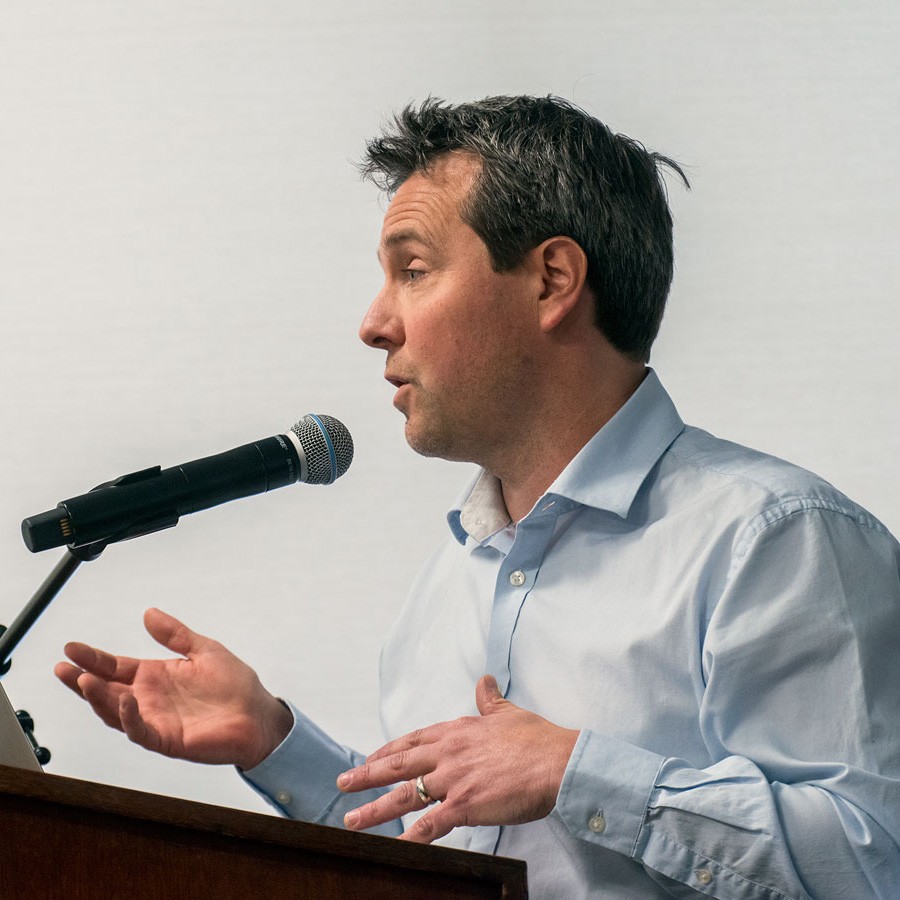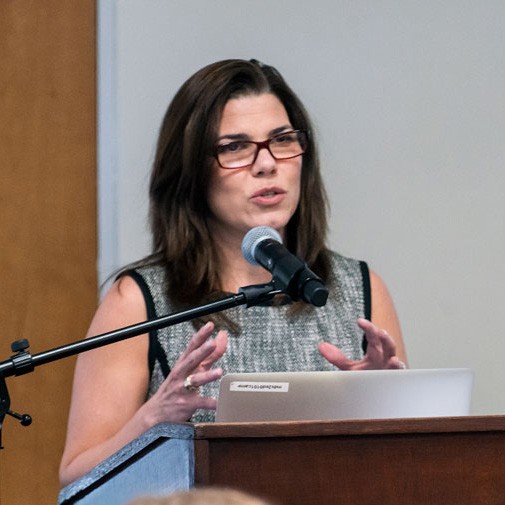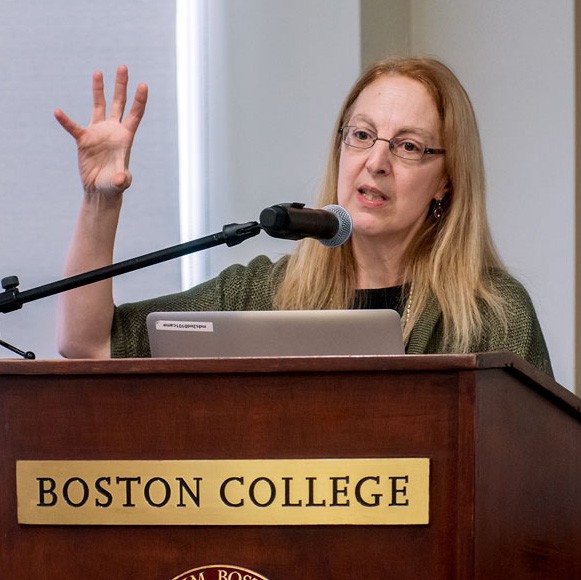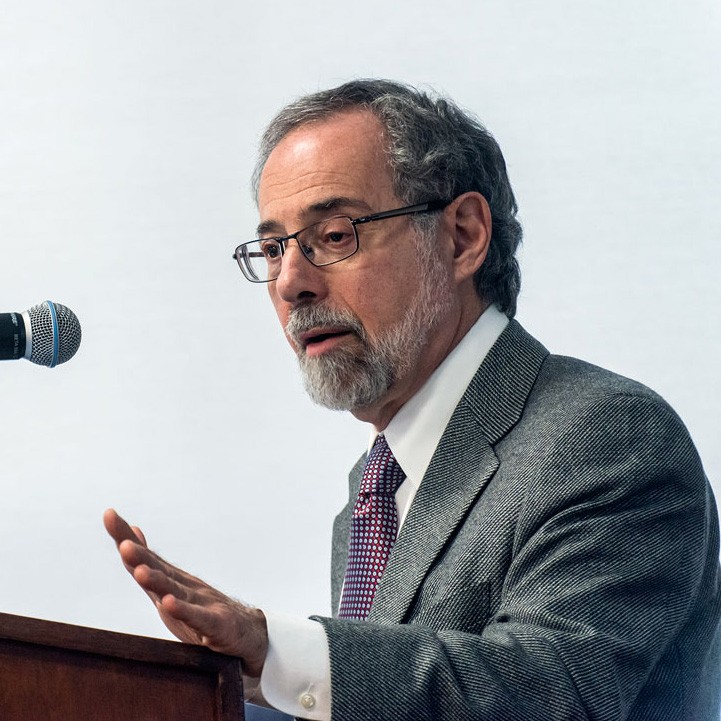Lynch School Associate Professors Eric Dearing, Mariela Páez, and Karen Arnold presented new scholarship on innovative approaches to closing the achievement gap at “Enhancing Educational Success for Economically Disadvantaged Children and Young Adults,” the 11th annual Faculty Scholars Luncheon held in Campion Hall on February 10.

Eric Dearing
Dearing, who teaches in the counseling, developmental, and educational psychology department, discussed research on early math learning, which he is conducting with Professor Emeritus M. Beth Casey. In their research, they explore how parents’ early, pre-kindergarten interactions with their children affect later math success. Analyzing their own observational data and some existing data from a 15-year National Institute of Child Health and Human Development study, the team found that parents engaging children in simple activities designed to build basic math skills—like asking three-year-old children to count coins or play with Duplo blocks—helped boost their later math success.

Mariela Paez
Páez, an associate professor of teacher education, special education, curriculum and instruction who has been studying young dual-language students for 16 years, focused on another early predictor of academic success—vocabulary. Páez’s team designed a vocabulary-focused reading program that supplements what kindergartners learn in classrooms with reading help at home.
“We worked with Spanish-speaking Latino families so that they would read in their homes and presented language and literacy activities that were culturally relevant to them,” Páez said. Over the course of a year, the researchers assessed whether kindergartners’ vocabularies were improving. They found gains for almost all students who participated—even those whose parents were not involved. But those who had support at home displayed the most significant gains. Páez’s model for vocabulary development is currently being adopted in several Boston Public Schools.

Karen Arnold
Associate Professor of Educational Leadership and Higher Education Karen Arnold discussed her collaborative research with investigators from several universities. Their research is examining ways of using technology to help high school students from low-income backgrounds better navigate the college application process. The interventions aim to enroll more students in top-tier colleges, bettering their chances for long-range academic and career success.
Arnold and fellow researchers evaluated the first-year performance of CollegePoint, a program funded by the Bloomberg Foundation that matches 1,300 low-income, high-achieving students with application advisors who offer guidance online and over the phone. The advisors help students and parents explore school choices and financial aid options, and guide them through essential steps such as testing, FAFSA forms, and essay writing. Arnold and her team found a 15 percent increase in the college acceptance rates of participating students in 2014–15. Arnold also discussed an ongoing Department of Education-funded program called Digital Information Messaging for Educational Success, in which students are given virtual reminders about the college process via text message.

Henry Braun
Discussant Henry Braun, the Boisi Chair of Education and Public Policy, closed the program by framing the presenters’ scholarship in a global context. In a globalized economy, he noted, interventions to promote literacy and help economically disadvantaged students are more essential than ever.
“Disadvantaged children need support all the way through,” he said. “We as a society need to do something about moving that support level right across the developmental trajectory.”
The Lynch School researchers, Braun said, are on the right track in evaluating, funding, and implementing interventions starting in early childhood and into adulthood. The next steps for the field, he said, are to focus on multiple outcomes, find cost-effective interventions, continue the search for new partners, allow for local adaptation, and scale up to address the needs of the hundreds of millions of people affected by the gaps.


